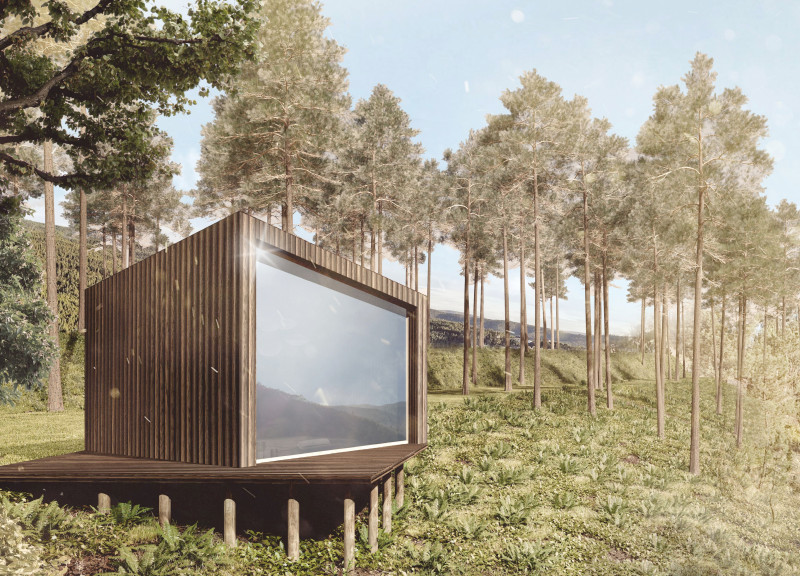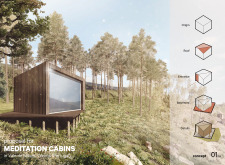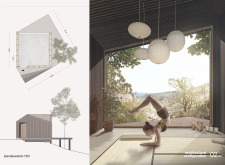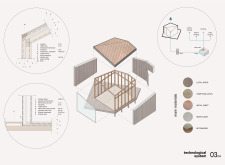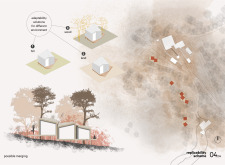5 key facts about this project
The Meditation Cabins in Vale de Moses, Oleiros, Portugal, represent a well-considered retreat that emphasizes simplicity and a strong connection to the surrounding environment. Set in a beautiful landscape, the cabins serve as spaces for mindfulness and reflection, featuring a design that encourages occupants to engage with nature.
Design Concept
The concept behind the cabins centers on minimalism, influencing both their shape and layout. The design is organized to prioritize function while creating a comfortable atmosphere. Strategic placement of entry points maximizes openness and allows for an easy flow between living spaces and the outdoors.
Structural Integrity
A selection of carefully chosen materials ensures the cabins are sturdy and emphasize a commitment to sustainability. Waterproof membranes are used to protect the structures from moisture damage, while insulation methods help maintain comfortable temperatures inside. A vapor barrier effectively manages humidity, contributing to the durability and comfort of the cabins.
Water Management
The design incorporates practical water management systems to address essential needs while being mindful of the environment. A main tank and pump setup enables efficient reuse of water for laundry and garden watering. This approach supports sustainable practices and highlights the connection between the cabins and their natural surroundings.
Adaptability
Adaptability is an important part of the design, with solutions that cater to various environmental conditions. Attention is given to how the cabins sit within hilly and wooded areas, allowing them to blend with the landscape. This thoughtful consideration enhances resilience and helps maintain the aesthetic appeal of the structures as they respond to their unique site.
The use of local materials on the exterior promotes harmony with the landscape, creating a visual connection that reinforces the overall intent to blend architecture with nature.


